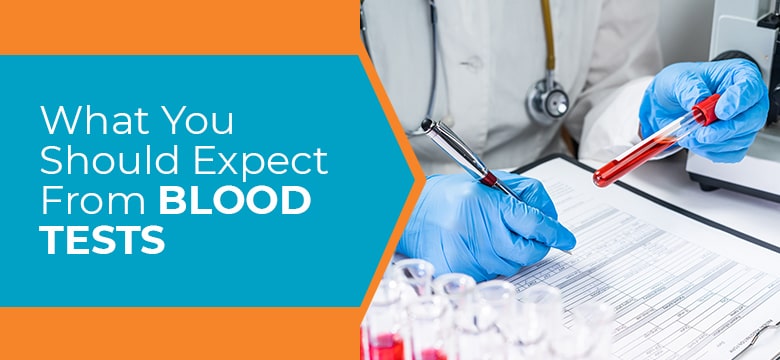
Blood tests help determine if someone has a disease or illness and diagnose blood conditions like malaria and HIV. Several types of blood tests are available, and depending on your symptoms, the doctor can order one or more blood tests.
Below is information on some of the common blood tests.
The following are the benefits of getting these blood tests.
A blood test can detect blood conditions such as malaria and HIV. A timely and accurate diagnosis of these conditions informs you to take steps such as getting vaccinated or being more cautious about your sex life.
A blood test can identify different conditions you are unaware of because symptoms may not be present, especially in the condition's early stages. For example, a blood test can identify vitamin deficiencies.
Understanding your body and health status will ensure better preventive measures and timely treatment.
A blood test is an excellent option to determine if you have blood-related disorders or diseases. Unlike other medical investigations, a blood test can identify diseases early, including conditions affecting the essential organs.
If you had recent exposure to infected bodily fluid or blood, there might be a window period where your blood test will read negative, even when the disease is present.
The common blood tests are:
A lipid blood test checks the levels of some lipids in the blood. Lipids are a type of fat that play vital roles in the body, especially in cell function. This test can determine if you are at risk of conditions like heart disease. It also helps in diagnosing conditions associated with blood sugar levels.
This blood test checks whether you have enough iron in your body, so essential in diagnosing iron deficiency. The blood contains iron, but iron levels vary depending on sex and age. Iron stores in the blood are essential for the red blood cells to transport oxygen in the body.
The blood glucose test checks the levels of blood sugar. It can identify the level of glucose and other sugars in the blood, which is necessary for diabetes diagnosis.
The antibody test with a blood sample checks for antibodies in the immune system when infection or illnesses like hepatitis B and C and HIV are present. This test helps determine exposure to an infection or the risk of getting an infection.
The haemoglobin test checks the blood for the amount of haemoglobin. The amount of haemoglobin in the blood depends on the amount of oxygen the blood carries to other body parts. The test aids in diagnosing many diseases, including jaundice and anaemia. It also checks the quality of the blood.
It checks for specific proteins that the heart releases. If this test shows a high level of BNP, you may have congestive heart failure and coronary artery disease.
A blood count measures the different cells in the blood, such as red blood cells, white blood cells, and platelets, to diagnose a blood disorder. It can also measure the amount of iron in the blood.
A blood count is a common test prescribed when someone shows signs of anaemia and other blood conditions.
Blood cholesterol checks the blood for different lipids, including cholesterol. It can determine if you have HDL, LDL, and triglycerides. These are important parameters for checking the risk of developing heart disease.
This test checks for your blood type. Knowing your blood type is necessary in case of a blood transfusion. Infusing the wrong blood type can lead to death.
You can get these blood tests at Private Doctor London. Call us now on 020 7183 2792 to book an appointment with a doctor.